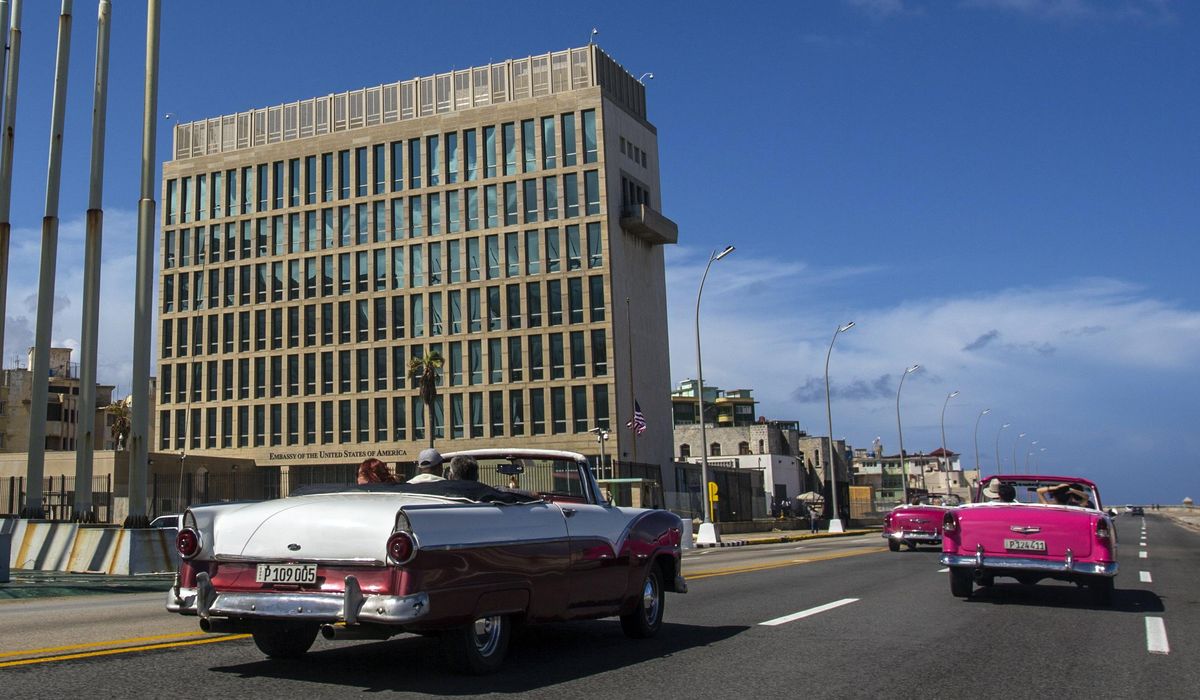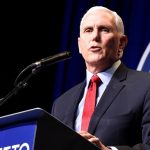
Marc Polymeropoulos was a senior CIA case officer on a routine visit to Moscow in 2017 when he awoke in his hotel room with a severe case of vertigo.
His first inclination was that he had food poisoning and that the symptoms would soon wear off. Instead, it was the beginning of a brain-rattling affliction that would last for years and eventually force him out of the CIA.
“It’s incredibly unsettling,” Mr. Polymeropoulos said of that night. “The room was spinning. I couldn’t stand up. I was falling over. I felt like I was going to be physically sick. I had ringing in my ears. And so I knew something pretty significant had happened.”
Mr. Polymeropoulos had fallen victim to “Havana Syndrome,” a debilitating affliction that was first suffered in 2016 by staff at the U.S. Embassy staff in Havana, Cuba. The mysterious symptoms “are consistent with the effects of directed, pulsed radio frequency (RF) energy,” according to a National Academy of Sciences, Engineering and Medicine report published last December, leading many to believe that they are a result of attacks with a microwave weapon or directed energy device.
The U.S. intelligence community doesn’t officially know any more now than it did five years ago.
After more than 40 cases were reported from Havana, the number of U.S. officials stricken around the globe swelled to 130, including incidents on U.S. soil.
Last month, new information was revealed about two U.S. officials struck by Havana Syndrome near the White House.
Mr. Polymeropoulos said he believes Russia is behind the attacks because they have the capability to carry out these attacks and that many of the officials who were affected were involved in Russian operations. He said the attacks seem to be in line with Russia’s treatment of U.S. diplomats.
“There has been a long line of U.S. officials who have developed some pretty severe health symptoms after serving in Moscow,” he said. “That’s something that is worth looking into again as well. Whether it’s the old kind of signals intelligence systems that were turned up too high or the old spy dust, you know, the Russians are very aggressive against U.S. government personnel.”
Nonetheless, he said this is just his theory. He is not involved in the ongoing investigation into the matter and has no insight into the classified discussions about the suspected attacks.
The episodes also occurred with U.S. diplomats in China.
The House and Senate Intelligence Committees recently held closed-door hearings on Havana Syndrome. Representatives from both committed declined to comment on the closed discussions, but a spokesperson for Senate Intelligence Committee Chairman Mark Warner said that the senator “welcomes the IC’s renewed focus on these mysterious attacks and that he’ll continue to work with the IC to understand the cause and the attribution.”
In a joint statement following the hearing, Mr. Warner and committee Vice Chairman Marco Rubio of Florida vowed to find the culprit.
“Ultimately, we will identify those responsible for these attacks on American personnel and will hold them accountable,” they said.
The State Department, CIA and Pentagon have all launched investigations. The National Security Council has begun leading what it called a whole-of-government inquiry into the anomalies. No official determination has been made as to the cause or who may be behind it.
“The Intelligence Community is taking these anomalous health incidents (AHI) very seriously and is committed to investigating the source of these incidents, preventing them from continuing, and caring for those affected,” said a spokesperson for the Director of National Intelligence. “As of now, we have no definitive information about the cause of these incidents, and it is premature and irresponsible to speculate.”
The intelligence community has not determined whether a foreign actor is responsible but the spy agencies have redoubled their efforts in recent months, the spokesman said.
Mr. Polymeropoulos said he understands why the intelligence community is taking a methodic approach. For him, however, supporting those impacted by the attacks takes priority.
With such little understanding of these attacks, Mr. Polymeropoulos’ journey to receiving the treatment he needed for his injuries was long.
After spending most of his career as a case officer in the Middle East, he said he did not expect to encounter a career-ending attack on his trip to Moscow — especially from within the walls of his five-star hotel near the U.S. Embassy. As the symptoms persisted, he knew he was experiencing something more serious than food poisoning. The symptoms continued after he returned to the U.S.
He reported his symptoms to the CIA Office of Medical Services soon after returning.
“I couldn’t even go to work for more than several hours a day because of the headaches, the dizziness and the brain fog,” he said.
With no treatment available to him, Mr. Polymeropoulos decided to retire from the agency in 2019, and, still seeking treatment, hired a lawyer to press the agency.
“I want nothing more than to get to Walter Reed,” he said he told his lawyer and other senior former agency officials who weighed in on his behalf. “And that was communicated to the CIA very specifically. And it worked.”
He said he had no interest in receiving a financial settlement. He just wanted treatment, which the agency refused.
In October 2020, Mr. Polymeropoulos took the unusual step for someone who led an entire career in the shadows and approached GQ journalist Julia Ioffe to make his case public.
He said he was torn by the decision to go public. He had told the agency that he was going to do so and said they were not surprised, but he did not make the decision lightly after a 26-year career.
“It caused me a lot of stress and anxiety. A lot of people I work with, my former colleagues, were very upset with me and certainly shunned me after that.”
But ultimately, it worked.
After the story was published, there was enough public pressure and the agency agreed to send him to a month-long program at Walter Reed’s National Intrepid Center of Excellence, he said.
When he arrived, he carried not only the symptoms from the attack but persistent anxiety that he blamed on not being believed. The program was helpful for not only dealing with the headaches, he said, but in dealing with what he describes as the moral injury of feeling shunned.
He felt his claims were finally validated.
Mr. Polymeropoulos chalks the agency’s denials up to what he describes as a leadership failure on the part of the Office of Medical Services. But he said current CIA Director William J. Burns has taken a different approach. Mr. Burns pledged in his confirmation hearing to prioritize the attacks, and the agency has established a task force to further examine the incidents.
“I think he just understands leadership,” Mr. Polymeropoulos said of Mr. Burns. “I was asked to do some really unique things by the U.S. government as a CIA Operations Officer, but I always knew that you have this pact with leadership that they would have my back if something went wrong. And they really didn’t. And I think he understands that they should have.”
Mr. Polymeropoulos also credits lawmakers for beginning their inquiry into the incidents and for taking the claims seriously.
Last month Sens. Susan Collins, Mark Warner, Marco Rubio and Jeanne Shaheen introduced the HAVANA Act which aims to provide financial support to those who were injured by the attacks.
“This is the way the system is supposed to work,” Mr. Polymeropoulos said in discussing congressional oversight. “I think it’s an effort to kind of right some wrongs that were done. I and others who’ve been affected are incredibly grateful to the Senators and House Members on both sides of the aisle.”




